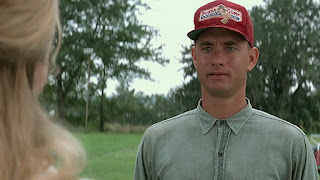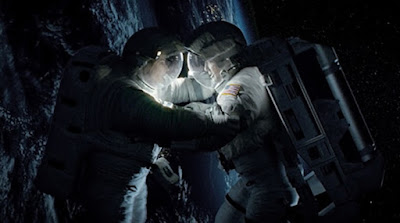The Overrated 8
 |
| And that’s what I think of your “great” movie! |
One of the benefits of maintaining this blog site is that I tend to write about what I choose to. If I wander into a film I don’t like, I can choose to not write about it. That isn’t to say that I go easy on what I do watch. But let’s face it, there are tons of movies out there that are awful in ways that cause the imagination to pale. Hell, there are a plethora of failures and miserable motion picture excrescence wherever you look. To be sure, I sometimes seek it out. But that’s not what this is about.
What follows is a rundown of films that while I recognize that they’re not unskillfully executed or maybe even well-done by many people’s metrics, I ain’t impressed. These are movies that captured the public’s imagination and maybe had help from the media gods to do so. They had help from someone somewhere because almost all of these are universally (the whole universe? Really?) acclaimed.
OH sure, I’m supposed to say that this is all subjective or that, heaven forfend, “I just don’t get it”, but one of the tacit assumptions of essay writing is that everything written by me is “my opinion…man…” In other words, I shouldn’t have to write those words. Likewise, if I say that these films are only acclaimed because someone somewhere paid serious money to make them acclaimed, that is, perhaps, a terrible claim (according to some), but context is everything. The context here is the whole goddamn blog and my idiosyncratic observations. So if I aver that these films are so well-regarded because of monetary influence or mass hysteria, that is also, like, just my opinion, man.
Honestly, I’m not going so far as to say that these are amateurish affairs. Baz Luhrman is a highly skilled story teller (for the most part); Ed Wood is not. But I don’t like most of Luhrman’s work. I find it insufferable and thuddingly stupid. I don’t find his take on Gatsby particularly enlightening or enjoyable despite a bitchin’ soundtrack, and his “Moulin Rouge!” (on this very list), frankly sucks. Of course, you say something like this and some people lose their shit.
“WHAT?! HOW FUCKING DARE YOU!?”
That’s rather the point of writing this. I think it’s instructive to ask why is this or that film accorded so much cache, but another is not. I think, too, it’s worth asking of ourselves why we hold the opinions we do and why we hold so strongly to them. Consequently, that’s why every time I write something, I have to ask why I hold this view and I do even go a bit deeper and try to find just to what degree I hold to that view.
Regarding film and other media, I may not be as impassioned by some works as I might lead on. Sorry about that. On the other hand, there are some works and authors, directors, artists whose works I am more attached to, but I’m aware that at the end of the day, these are only words about works about which we all have varying thoughts and emotional reactions.
I get why Scorsese and Coppola are so phlegmatic regarding superhero movies and the larger event-type flicks that drive water cooler discussion. But I also know that as brilliant as those auteurs are, we are still trafficking in the world of opinion. Their opinions would and should carry more weight than mine, but I also disagree with them to the point that while I understand what they are saying, I disagree in terms of what these films (and despite what they say, by their own metrics, some of these works are films in their senses of the word, and if the works are driven by nine figure budgets, there is often a personal component in the making of them) do mean and do accomplish.*
What I find funny is how the universes of social media go into feeding frenzies over, well, just about anything, but for our purposes, over specific movies and the vituperative/enthusiastic surges that follow in those movies’ wakes. The snowball effect is also pronounced: soshmedia (socmedia?, uh, maybe I should just stick with “social media”) tends to pigpile on works first, then on words about those works, then devolve into online internecine cannibalistic melees when the commentariats turn on one another. Good times.
There’s not much here that I find controversial. Do I think “La La Land” is a heaping, steaming turd? No. No, I really don’t. But I don’t like the film and I felt that I’d wasted my time after seeing it. Two hours plus that I won’t get back. Am I glad I saw it? I suppose. I suppose that if I care about movies enough to write about them, then sure, I can say “I’m okay with having seen La La Land.” But not much more than that.
“Gravity”? Nope. Nope. A work by a director whose oeuvre I genuinely love and admire and it just struck me as a big whiff full of inanity and nearly non sequitur plot holes. Did I hate it? No. There are plenty of other things in life to be upset with. Movies aren’t necessarily in that category. But I really, strongly, did not care for “Gravity”.
“Tree of Life” is a disappointment that I cannot articulate strongly enough. That will become clearer in the entry below.
Why these movies? Why not? Mostly, because they are relatively recent and by film historical terms, still fresh enough to be considered relevant. For instance, I’m not going after “Gone With the Wind.” Yeah, I’m that guy: I really don’t like it. I admire its scope and individual moments and grace notes, but it’s a bloated, melodramatic slog. What I dislike in GWTW is what I dislike in “Titanic”; only “Titanic” has those elements dialed up to eleven and is nowhere nearly as masterful as the earlier epic in terms of humanity, execution, or performances. Again, not sure I would commit to saying I hate “Titanic” but my dislike of that film borders on anger at myself for sitting through it.
Here’s something to provide more context. Terrence Malick is a poetic genius of film. He brought an intimacy in the vast landscape of the United States to American films in the seventies that maybe might be likened to what Wim Wenders was doing in Germany at the time, and when he returned to cinema after almost two decades, it was astonishing to see how he had honed his approach. Until “The Tree of Life” and frankly, that for me was the downturn in Malick’s work. If you want to grow in abstraction, then commit to it. There is much in “Tree of Life” that - despite what I’ve just written - I actually do admire; but it’s the difference between a vagueness in language (both filmic and dialogic) that sounds like a high schooler who had just read Rilke for the first time and, say, Godard’s later work like “A Farewell to Language” or “The Image Book” that are willfully and gleefully, works of genuine abstraction dealing very much with the breakdown of image and word, the dissolution of narrative and in breaking new ground for a cinema of poetry and ideas.
So, gee, Terry Malick isn’t Jean-Luc Godard? It’s not just that. Why do I feel Godard succeeds where Malick does not. This is the deeper inquiry behind the comments on the films that follow. Who knows? Maybe I’ll learn something about myself and about film by the end of this?
Taking any bets? Anyone?
NOTE: These are all films from the end of the last century to the present. There are, of course, older films (and yes, recognized classics among them) that I might be inclined to call out; but mostly, this is a reaction to what I feel is hyperbole or unwarranted acclaim within recent memory (mine, anyway…’cause I’m old).
 |
| Well, at least it’s not a MAGA hat? |
“Stupid is as stupid does.” Truer words were ne’er spoke. There is quite literally, nothing I like about this movie. Its treacly, syrup-laden sentimentality, its tone-deafness on using AIDS as a plot point (and as a form of retribution for a character), and of course, its valorization of stupidity offends me no end.
Zemeckis had grown out of his mentor Spielberg’s shadow by this time (the Back to the Future series, “Who Framed Roger Rabbit?” were under his belt by this point) but it appears he decided to employ the weaknesses that plague the worst of St. Steve’s work: under-written characters, sickeningly emotive manipulation abounding, and a conceit that an idiot - oh, I’m sorry, an innocent - like Gump would represent the best of the American spirit would work for me if the idea was that we have historically lauded ignorance and failing upward. It would work for me if the idea was a genuine riff or variation on Ashby’s “Being There” and was actually a work of biting satire. But it’s not. It’s a pandering, slavering flick that draws on our nation’s distrust, if not outright hatred of, education and intellectual advancement.
In the ensuing decades, “Gump” is no doubt a favorite among the G.O.P.
And no, I didn’t care for Hanks in this, either.
 |
| Look! I can see unearned acclaim in the distance! |
“The English Patient” (1996)
This may not resonate with many people these days, but I’ve heard it referred to as a classic too many times or spoken of in hushed tones of reverence, and it makes me truly queasy. Anthony Minghella was a fine director but the source material defeated him. Ondaatje’s book is a slim work of expansive genius and so much more than the romance that the filmmakers seemed bent on reducing it to.
Gone was any sense of dimension or any rumination on the nature of time and memory. Forget about adapting the prose of the novel; the point is that the book is more than its plot and the film is simply less than the book. It doesn’t qualify as a literary adaptation; it doesn’t really attempt much except to look good and like many of the other films in this list, attempt to manipulate the audience into feeling something for the Binoche and Fiennes.
John Seale’s cinematography was even over-baked. It’s not like there was a dearth of talent on display, either, but when a film bleeds all the life out of a tale, there’s not a lot to get behind. Perhaps I’m being harsh, but I’ve no desire to revisit “The English Patient” to find out if I am.
 |
| AKA That Sinking Feeling…that this is going to be a hit. |
“Titanic” (1997)
Jesus Godalmighty… I could not wait for the iceberg.
There are no characters in this flick. That two of the most charming young actors came across as callow and vapid is a work of some merit in itself. Let’s be clear: James Cameron is a lot of things. He is a genuinely great director and producer, this isn’t a matter of dispute; however, between this and his later entry in this list, he’s proven he is not a threat to Tony Kushner. Look, the first two Terminators, and “Aliens” are bona fide works of cinematic science fiction genius. I’ll stand by “The Abyss”, even. And maybe “Total Recall” whiffs here and there, but it’s still great fun, something that absolutely cannot be said of this interminable soap opera on a boat.
I don’t know how I made it through three and a quarter hours of this wreck; I really don’t know how people I know and like went back and sat through it multiple times.
 |
| So big! So Loud! So…stupid! |
“Moulin Rouge!” (2001)
Fuck Baz Luhrman. Seriously. “Romeo + Juliet” still works for me, but everything else registers as either annoying or frankly, anger-inducing. And yet, and yet, he’s hailed as a genius of immense proportion.
I was annoyed for the entire running-time of this over-budgeted student film. I walked out of the Somerville Theater with my buddy Kaz who had only one comment: “what the hell was that?” Oh, sure, it’s a deconstruction of the musical, a reinvention of a well-known property, replete with no songs I can remember, performances that bordered on - no, simply were - inane.
It is a great looking movie. And I suppose the use of popular songs to advance the narrative displayed something, but I don’t really know what. Unlike, say, Tarantino’s anachronistic but perfectly weighted use of Bowie’s “Putting Out a Fire with Gasoline” in “Inglorius Basterds” a few years later, Luhrman’s pastiche work still strikes me as mere piffle.
And don’t mention “Australia” to me; that’s another steaming pile I could do well without remembering. Thank you.
 |
| Many, many people paid to see this and Jim Cameron re-released it just to maintain its #1 position. Hence, a shit-eating grin well-played. |
“Avatar” (2009)
Oh, James Cameron, yet again. What the fuck, man? Seriously, there’s a really good movie in here somewhere but you couldn’t have been bothered to make it. Yes, I really do love the idea of the “avatar” as a transhumanist form of existence that could conceivably assist us in visiting other worlds, overcoming disabilities, and extending what it means to be a body in the first place. I’m on board with the anti-military/corporatist sentiment and the pro-environmental messaging. But goddamn. How is this such a snooze fest?
Yes, the visuals are amazing and to be sure, this movie single-handedly advanced what 3-D can do and be; but as with every other movie here, where are the characters? Where are people you can relate to? Where are people who actually talk to each other and respond in dialog that actually sounds the way humans speak to each other? They are not to be found. And we have another four of these to go through?
When Terrence Malick returned to feature films with “The Thin Red Line”, I was giddy with anticipation for what he was going to do. I was not disappointed. I wasn’t blown away by “The New World”, but it was nothing to be ashamed of. Nor was it overly lauded, as I recall. But then came “Tree of Life” and critical acclaim not seen since the Baby Jesus was played by a light bulb in a “A Peanut’s Christmas”.
Archetypes. Whispered narration of portentious poetic musing and reflection. Chivo’s remarkable cinematography and soi-distant figures only trying to connect. Did I hate this? No, no I did not. Emphatically. But that it was so highly regarded and received like the Second Coming was out of all proportion.
Malick is one of our great visionary directors. Again, as with Cameron, there’s no denying his contributions to the medium and by extension, the culture. I have no issues with Pitt, Penn, Chastain or anyone in the film. It is a lovely, lovely work. And I’ll even go so far as to say that it is a near-great film. But my issue isn’t with the film (except…dinosaurs? Really? I get it, don’t worry, I get their presence, but that they were rendered so poorly I found distracting; as well as their presence in general but I get why they’re there.)
It’s with the critics who couldn’t fall over each other hard enough to heap praise upon what is a fine film (again, I’m not arguing that it’s not a good film, perhaps even great in some regard) to a nauseating degree. Comparisons with Tarkovsky were where I drew the line. Hell, even saying that this was a better film that “Days of Heaven” and “Badlands” was really pushing it for me.
Malick is a poet. But sometimes even the greatest poets write doggerel. A certain amount of “The Tree of Life” is not merely elliptical or ambiguous: a certain amount is tedious. Not just the dinos, but the languor of much of the contemporary passages in the film undercut the wonder of the 1950s portions. This may be by design. Penn’s adult version of Brad Pitt’s son is coming to terms with that distance from a man who is as much a part of nature as a tree. But this is established succinctly relatively early and not without much in the way of being worried or fussed over. And there’s the issue: there is a fussiness that demands you pay attention because this is a movie with big ideas, goddammit.
I have no problem with ambiguity or important ideas in cinema. In fact, we need more cinema like that each passing year as we get less and less of it (I see you Scorsese and Coppola), but it takes a sensitive balance to be able to engage those ideas. Bergman didn’t do it all the time successfully and I don’t expect anyone to. Not even Malick. (I was going to use Godard as another example, but I realize that Malick shares more with Bergman than the French master and is more of a mystic à la Tarkovsky, though I can’t really say that their works are comparable. And yes, I invoked Tarkovsky. Sue me.)
But I do expect critics to have some sense of measure and balance and enough historical perspective to not fall for everything that any artist does as though he is re-writing the grammar of the medium every time out.
Of course, I’m also the guy who rather preferred “Knight of Cups”, so I am a philistine, after all (as though anyone reading this no doubt is aware).
 |
| I see nothing between these two people. The whole film tried to convince me that there was. It failed. I really do not like you, “La La Land.” I really do not. |
“La La Land” (2016)
Oh, please. Deliver my ass from this mess. I don’t know where to begin with this overpraised, overhyped drivel. Seriously. How do you take two of the most charismatic and talented performers on screen and bleed them of anything that hints of life?
Maybe it wouldn’t have been so bad if the movie didn’t start with such promise. But it did and promptly devolved into an empty cardboard cut-out of a musical. I read it compared to “The Umbrellas of Cherbourg” after I saw it and all I could think is that whoever drew that comparison hadn’t seen Demy’s opus.
Mind you, Damien Chazelle is a talented filmmaker. I didn’t like “Whiplash” but I saw it as, frankly, a really strong work. Maybe a masterpiece. “First Man” is certainly worthwhile, as well.
Visually, there’s a lot here to commend the film; but as a musical, it fails to engage. Sure, there are a couple of memorable tunes, but I don’t care about the characters. In a Malick film, the characters can be types or archetypes or symbols and serve a cinema of ideas and abstraction. Not every narrative requires fleshed-out, relatable figures. However, given the conventions of the musical, you best have them if the song-craft is going to have any meaning or resonance. And there’s none of that in the material at hand here.
I was bored shitless throughout and wondering how it’s possible to be so disengaged from Gosling and Stone, two remarkable actors by any metric. Yes, yes; Gosling is very much a minimalist actor but it’s as if the material wanted him to be more of a cypher. And Stone? Jesus. I was annoyed that she was given so little to do and what she did have to do was merely react.
I won’t go into the idiocy of a white man explaining jazz to a black man or some of the long, drawn out spells of “atmosphere” that punctuate much of the film. Yeah, looks great. Less filling.
 |
| “Gravity” Fails. |
“Gravity” (2013)
I rather hate myself for hating this movie. Alfonso Cuarón is one of my favorite filmmakers and aside from this, there are no major missteps (well, maybe “Great Expectations”, come to think of it, but not like this.)
Where to begin? Is it the whole narrative as nonsensical twaddle? Is it that - despite the pains taken to make the effects “scientifically realistic”, Clooney’s character would not have kept receding into the vastness of space, and oh, right, Bullock in changing out of her suit? Astronauts don’t do that and she wouldn’t have been wearing skivvies like an underwear model.
Mostly, though, I just despised the emptiness of her performance and her character. I despised the faux anxiety, the phoniness of ginned up “suspense” that I never bought because the whole film is gossamer. I despised the fraudulence of it all.
Sure, fiction is by definition “unreal” but successful fiction leads us to deeper truths at its best and entertains us at the very least. In other words, the lowest bar you can set for fiction is that it be fun. “Gravity” is none of these things.
Eye-popping, at least in the beginning; but a wretched slog for the remainder. Thankfully, Cuarón also gave us “Roma”, a beautiful gem of a movie I’m glad I saw in the theater. It had all the elements that “Gravity” lacks, including gravity…and heart, and people you genuinely care about.
It’s amazing that in the space of twelve years, he gave us “Y tu mamá también (2001)”, “Harry Potter and the Prisoner of Azkaban” (the first “serious” Potter film, maybe the only one that could be called “cinematic” in Scorsese’s sense of the word?, and “Children of Men”, another masterpiece. And then, out comes this.
That “Gravity”, like all the other films in this list, garnered so much near-universal acclaim probably shouldn’t surprise me. We are all allowed our opinions and we feel as we do for a myriad of reasons.
Admittedly, I am perhaps being unnecessarily mean toward some of the works here, and I may not feel quite that strongly about some of them, but I do not understand the unmitigated positive receptions that each of these movies received and/or have acquired since their releases.
If I’m writing hyperbolically, I feel that each of these films was received with enough ballyhoo to reply in kind.
If there’s a throughline here, it’s that none of these movies were compelling, either as straight-up narratives or as thematic explorations (okay, I’ll cede a bit to Malick). Certainly, none of them offered characters that I cared about because either a given film’s structure or script didn’t admit of that or frankly, there were no characters to speak of. See my comments above for why that matters. I repeat myself enough in these things.
This was fun and I don’t look forward to doing it again, though with the Academy Awards coming up, I have an idea percolating that may be as inconsequential as “La La Land.”
* Just what do “super-hero and event movies mean and accomplish”? I have an idea for another post!





Comments
Post a Comment